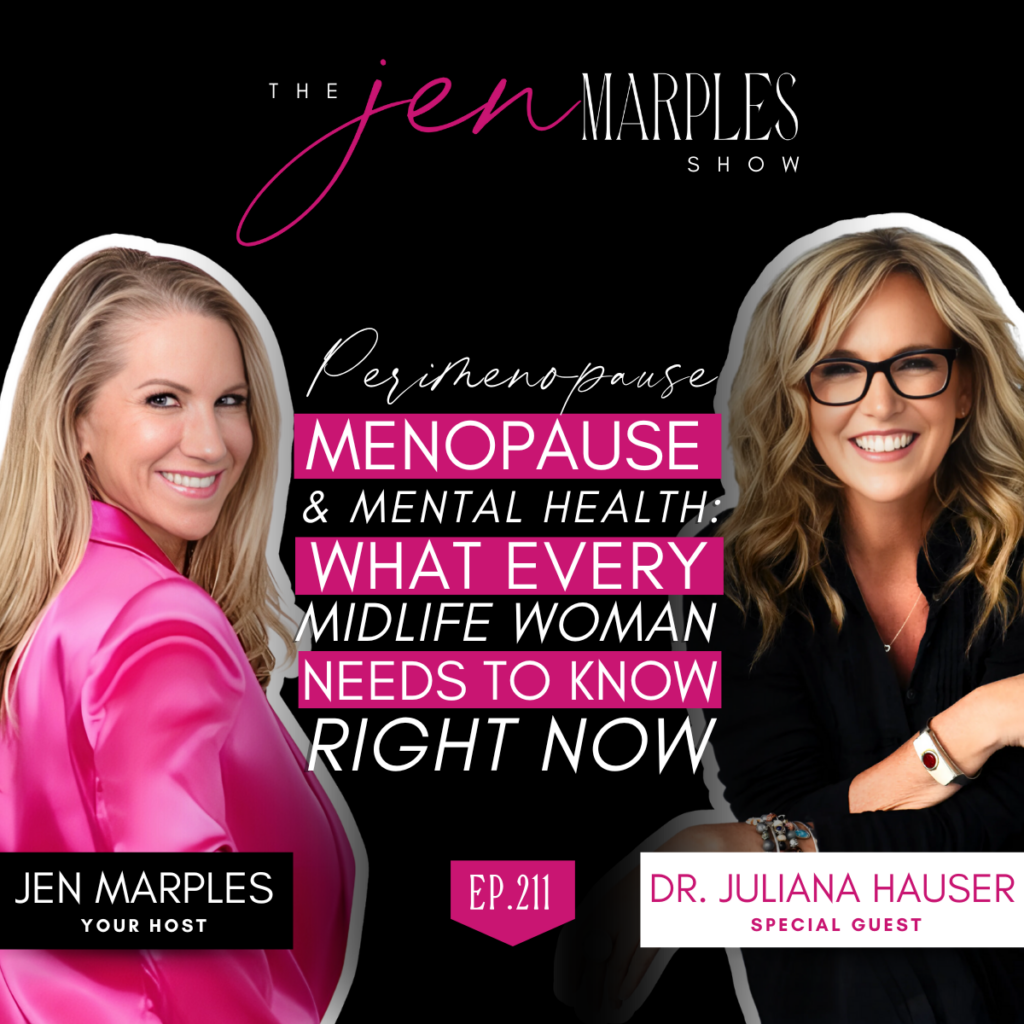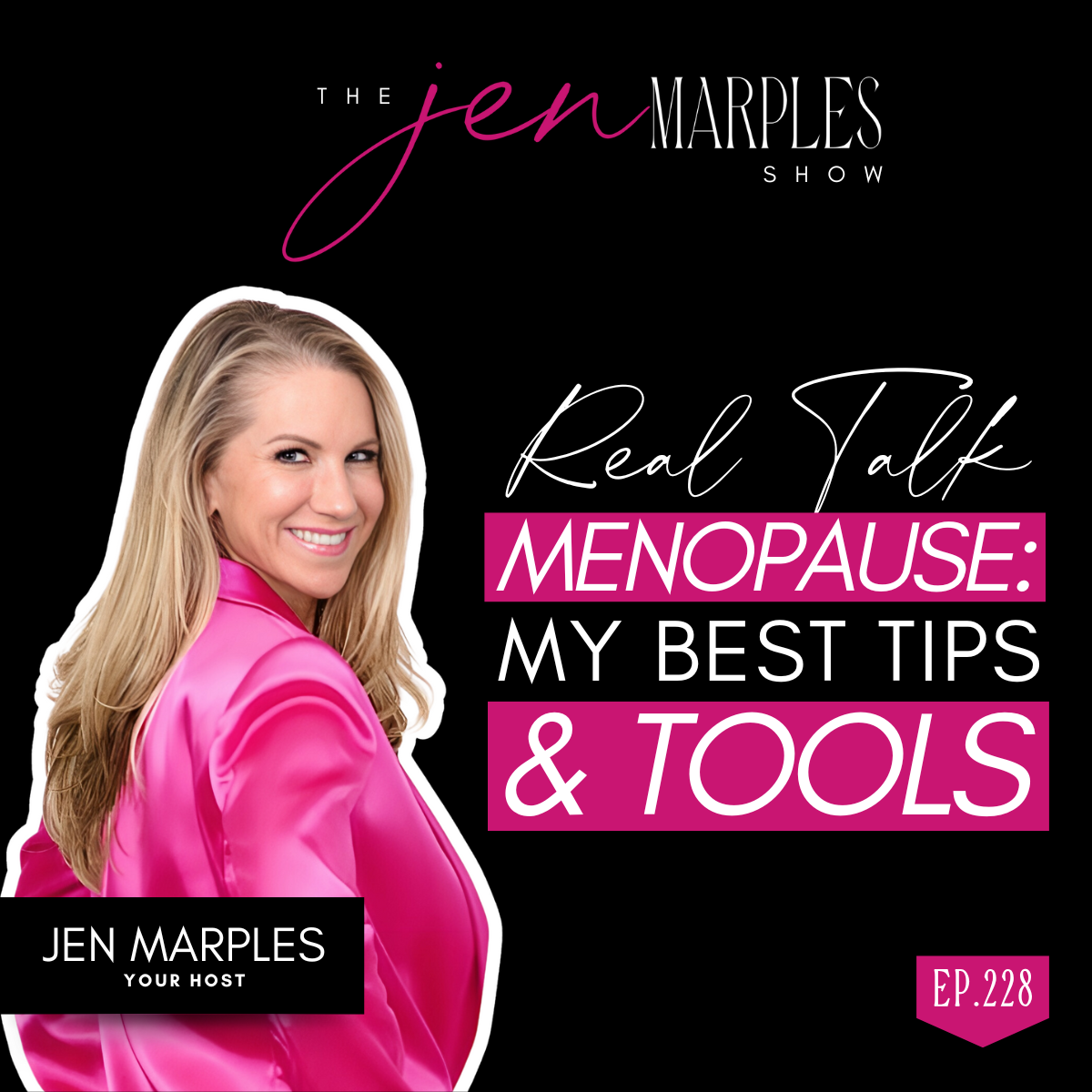
Ever experienced emotional turbulence you couldn’t explain or control? In this raw and revealing episode, I sit down with renowned mental health expert Dr. Juliana Hauser to uncover the profound neurological shifts occurring in our brains during perimenopause and menopause. If you’ve ever thought “I don’t feel like myself anymore” or wondered why your emotional resilience has vanished, this conversation will be your lifeline.
Dr. Juliana Hauser courageously dismantles the persistent silence surrounding midlife mental health, illuminating how our changing hormones directly impact our mood regulation, anxiety levels, and even suicidal thoughts (which increase sevenfold during perimenopause). I share my own mental health breakdown that nearly destroyed my marriage and had me unable to get out of bed—all while no healthcare provider connected the dots to my hormonal changes. This isn’t just another menopause episode; it’s the mental health conversation that might save your life or the life of someone you love.
Dr. Juliana Hauser has a PhD in Counseling Education, is a TEDx speaker and the author of A New Position on Sex: A Guide to Greater Sexual Confidence, Pleasure, and Authenticity, coming September 2025.
Key Takeaways:
- Your “mood swings” aren’t character flaws but biological changes in how estrogen regulates your emotions and resilience
- Women are seven times more likely to have suicidal thoughts during perimenopause, yet most doctors never mention this
- Why it’s nearly impossible to tell which midlife struggles are hormonal and which are circumstantial and why that distinction matters for treatment
- How to create your mental health safety net and the practical steps Dr. Hauser recommends for weathering the storm
- The freedom and self-acceptance waiting on the other side of this transition
Juliana Says: You’re Not Too F***ing Old! to find absolute joy and pleasure in life again!
Mental Health in Midlife: Breaking the Silence on Perimenopause and Menopause
Let’s get real for a moment. When I hit perimenopause, I felt like I was losing my mind. Mood swings that came out of nowhere, unexplained anxiety, and moments of complete emotional overwhelm – sound familiar? I know I’m not alone, and that’s exactly why I sat down with Dr. Juliana Hauser to dive deep into the mental health challenges women face during this transformative time of life.
The Hormonal Truth No One Talks About
Here’s the truth no one wants to talk about: Midlife hormonal changes are more than just physical. They’re a complete emotional rollercoaster that can dramatically impact our mental well-being. Most women have no idea what’s happening to them, and that uncertainty only makes everything worse.
Dr. Juliana Hauser shed light on something critical – our hormones are directly connected to our emotional regulation. Estrogen isn’t just about reproduction; it’s a key player in how we process and manage our emotions. When estrogen levels start to fluctuate during perimenopause and menopause, it’s like our emotional GPS suddenly goes haywire. Mood regulation becomes challenging, and our ability to bounce back from emotional setbacks becomes significantly harder.
But here’s what shocked me most: Women are seven times more likely to experience suicidal thoughts during perimenopause. Seven times. This isn’t just a statistic – it’s a wake-up call that we need to take our mental health seriously during this phase of life.
The Complex Hormonal Symphony
The hormonal shifts don’t just affect one aspect of our mental health. Progesterone impacts our sleep and emotional calm, while testosterone influences our energy and overall vitality. It’s a complex interplay that most of us have never been taught to understand or navigate.
What makes this phase even more challenging is the cultural silence. We’re expected to keep pushing through, to maintain our superhero status of taking care of everyone else. But the truth is, we can’t pour from an empty cup. Recognizing that you’re struggling isn’t a weakness – it’s the first step toward healing.
Your Roadmap to Mental Health Support
So what can you do? First, educate yourself. Learn about the mental health symptoms specific to perimenopause and menopause. Build a support network of friends and professionals who understand what you’re going through. Don’t be afraid to seek help from therapists who specialize in midlife transitions.
I want to be crystal clear: You are not alone. Your experiences are valid. The emotional challenges you’re facing are real, and they’re not something you need to suffer through in silence.
Practical Steps to Reclaim Your Mental Health
For those wondering where to start, here are my top recommendations:
– Find a therapist who understands midlife hormonal changes
– Connect with other women going through similar experiences
– Be honest with your support system about what you’re feeling
– Consider hormone replacement therapy if appropriate for you
– Practice self-compassion – you’re navigating a significant life transition
An Opportunity for Transformation
Dr. Hauser’s most powerful message resonated with me deeply: This is a time of potential awakening. Yes, it’s challenging. Yes, it’s uncomfortable. But it’s also an opportunity to prioritize yourself, to heal old wounds, and to step into a more authentic version of yourself.
To all my beautiful women out there feeling lost, overwhelmed, or like you’re losing your mind – you’re not. You’re in a profound period of transformation. Your feelings are valid. Your experiences matter. And you are so much stronger than you realize.




